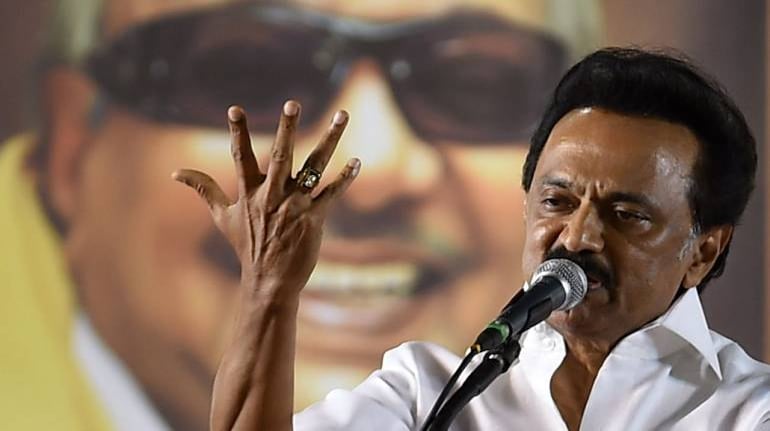



Tamil Nadu assembly on April 25 passed two Bills empowering the state government to appoint vice-chancellors to the 13 universities in the state.
The move is likely to escalate tensions between the Dravida Munnetra Kazhagam (DMK) government led by chief minister MK Stalin and governor RN Ravi. At present, the power of appointing vice-chancellors of these universities lies with the governor, who is the chancellor of these universities.
Amendments
The Bills introduced in the assembly by higher education minister K Ponmudy proposed amending the Tamil Nadu Universities Laws (Amendment) Act, 2022, which covers 12 universities, and Chennai University Act, 1923, which governs the functioning of Chennai University.
Also read: Tamil Nadu’s resistance to NEET: All you need to know
Every vice-chancellor will be chosen by the government from a panel of three names recommended by a selection committee, the Bills say. At present, the governor selects a vice-chancellor from the names sent to his office by the selection committee. The state government also wants to take any decision on removal of vice- chancellors, according to the proposed laws.
The reasoning
Stalin told the assembly on April 25 that the state government lacking the authority to appoint vice-chancellors impacted higher education.
"By convention, the governor appoints vice-chancellors in consultation with the state government, but during the past four years, there has been a trend in which the governor, without consulting the state government, is functioning as if he has the exclusive right over appointing vice- chancellors," Stalin was quoted as saying in a report by The Hindu.
The practice "disrespects” the elected government, leads to confusion in the administration of universities and is "against the philosophy of people's rule", the chief minister said.
Also read: With Delhi visit, is MK Stalin preparing for a greater role in national politics?
Stalin referred to recommendations made by a commission on the appointment of vice-chancellors. As many 19 states, including Tamil Nadu, have accepted the recommendations of the commission, he said.
The commission headed by former Supreme Court chief justice Madan Mohan Punchhi dealt with Centre-State relations. It recommended against the appointment of vice-chancellors by the governor.
“There would be a clash of functions and powers” between the state government and the governor, Stalin quoted the commission as saying.
Other states
The Bills cite the Gujarat University Act, 1949, and Telangana Universities Act, 1991, whereby the state governments appoint the vice-chancellors. The Karnataka State Universities Act, 2000, empowers the chancellor to appoint the vice-chancellor with the concurrence of the state government.
“Even in Gujarat, from where Prime Minister Narendra Modi hails, the state government appoints a vice-chancellor from a panel of three names recommended by the selection committee. In Andhra Pradesh and Telangana too, the vice-chancellors are appointed from a panel of three names recommended by the selection committee only with the concurrence of the state government.” Stalin said.
Also, read: Third Front | Alternative political combination and its challenges
The Maha Vikas Aghadi coalition government in Maharashtra, headed by chief minister Uddhav Thackeray, initiated a similar move in December.
Governor Vs DMK standoff
The Opposition All India Anna Dravida Munnetra Kazhagam (AIADMK) and the Bharatiya Janata Party (BJP) opposed the Bills. BJP MLAs walked out of the House.
The Bills are likely to curtail the powers of the governor over the appointment of vice-chancellors amid allegations that the governor often acts at the behest of the Union government that appoints him.
The Tamil Nadu governor has many times rejected the selection committee's recommendations on vice-chancellor posts in the past. The standoff between the state government and the governor has even reached Parliament, with DMK MPs demanding recall of Ravi.
University Grants Commission rules empower the chancellor to appoint the vice-chancellor from a list of names recommended by a selection committee. Central universities follow the norm but states have resisted this system for state-run universities as in the case of Tamil Nadu. These Bills, like every piece of legislation passed by the assembly, need to be forwarded by the governor to the President for his assent to become a law.
Also read: Stalin meets PM Modi; seeks Centre's nod for providing humanitarian aid to Sri Lankan Tamils
The Bills come amid a standoff between the ruling DMK and Ravi over at least 10 proposed laws, including one that seeks exemption for aspiring doctors in the state from appearing for the National Eligibility-cum-Entrance Test (NEET) for admission to medical colleges.
Earlier this month, the state government boycotted events organised by the governor to protest against alleged delays in clearing Bills passed by the assembly.
Discover the latest Business News, Sensex, and Nifty updates. Obtain Personal Finance insights, tax queries, and expert opinions on Moneycontrol or download the Moneycontrol App to stay updated!
Find the best of Al News in one place, specially curated for you every weekend.
Stay on top of the latest tech trends and biggest startup news.